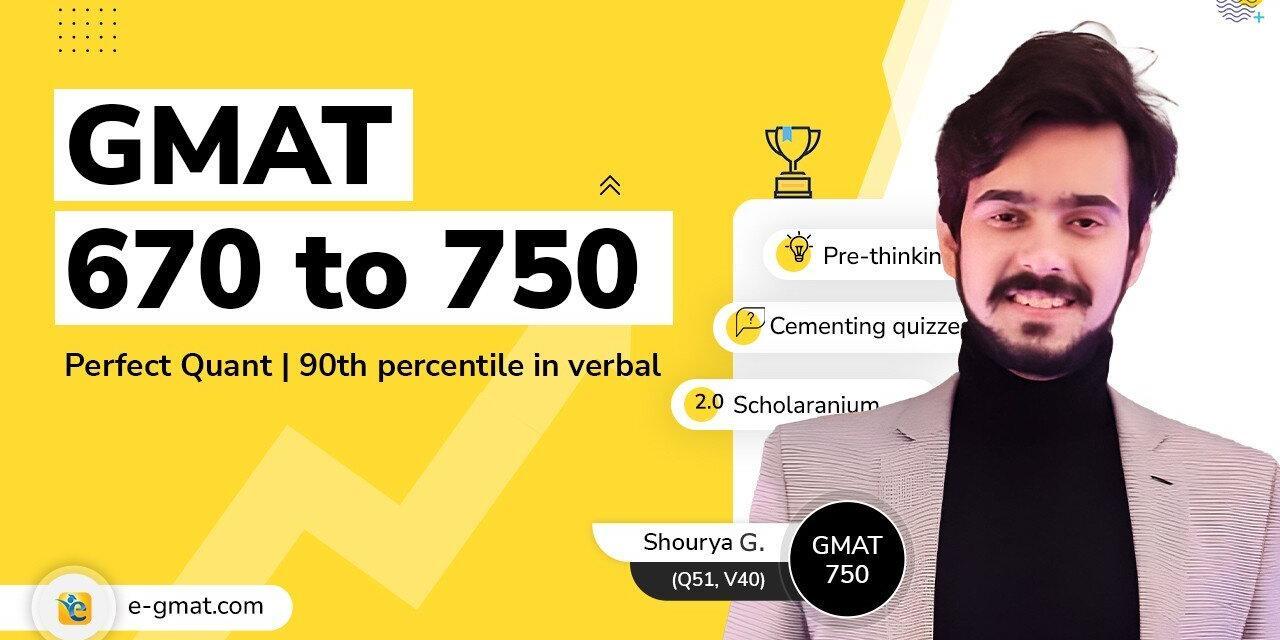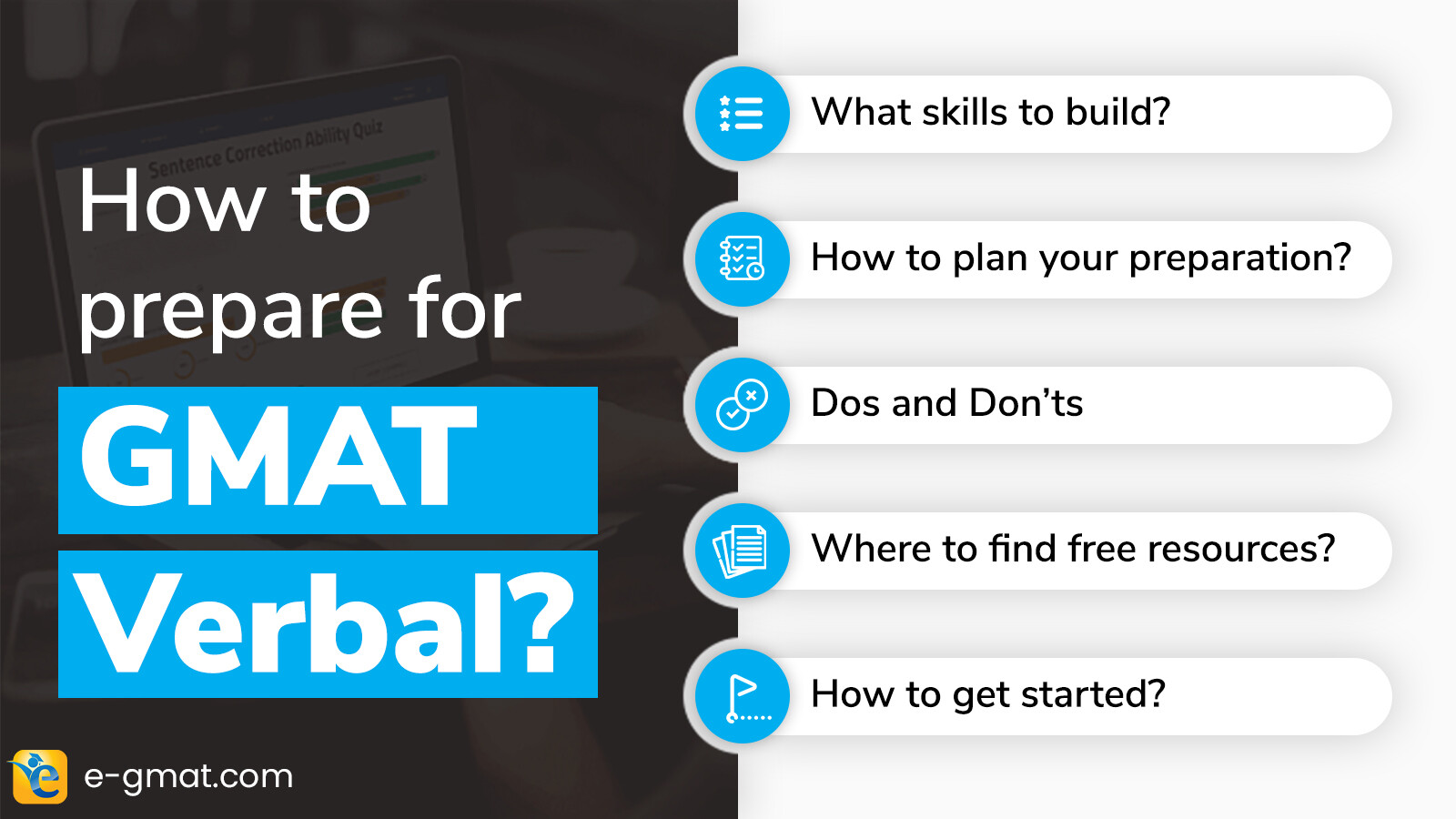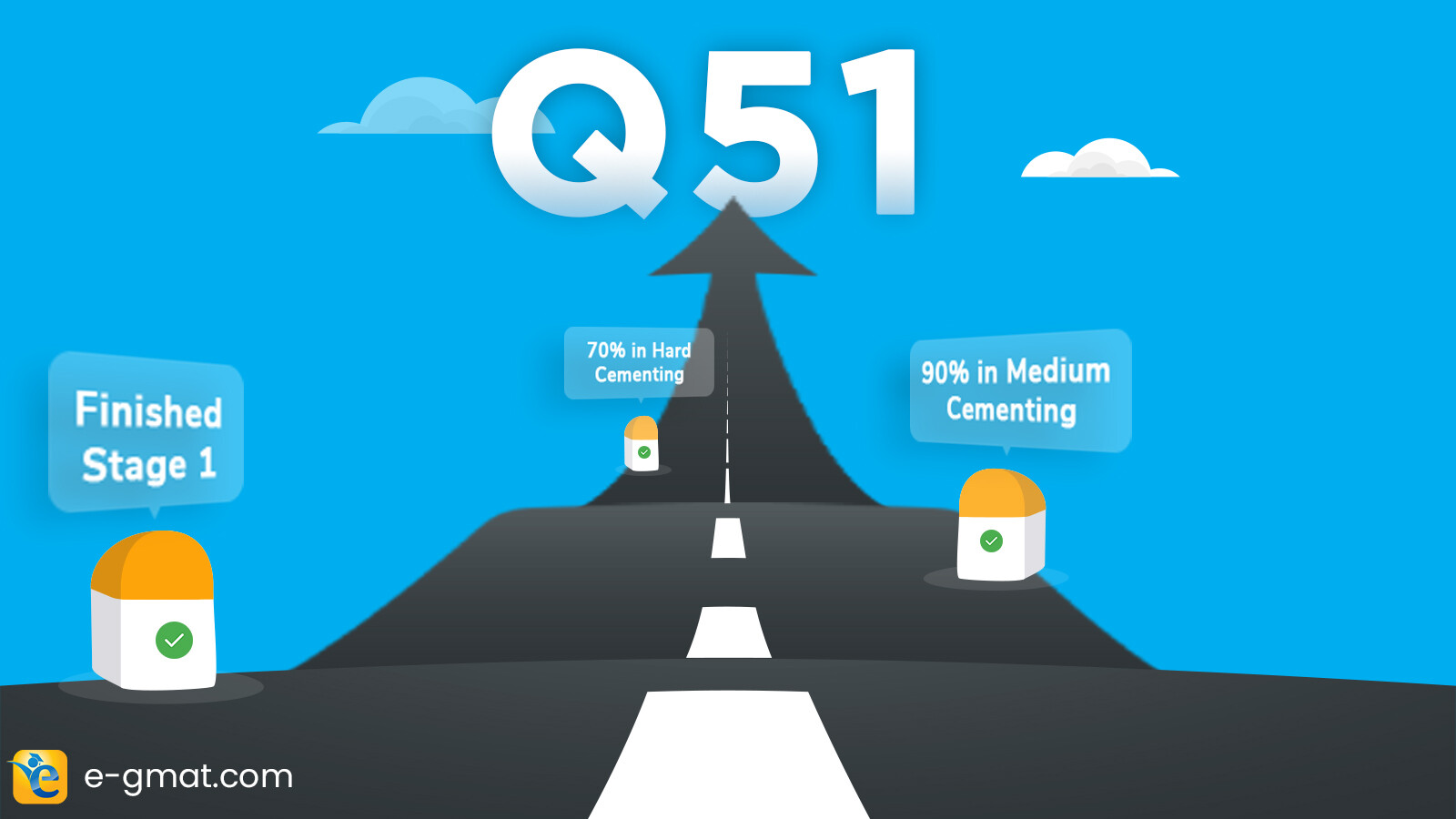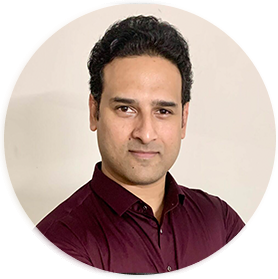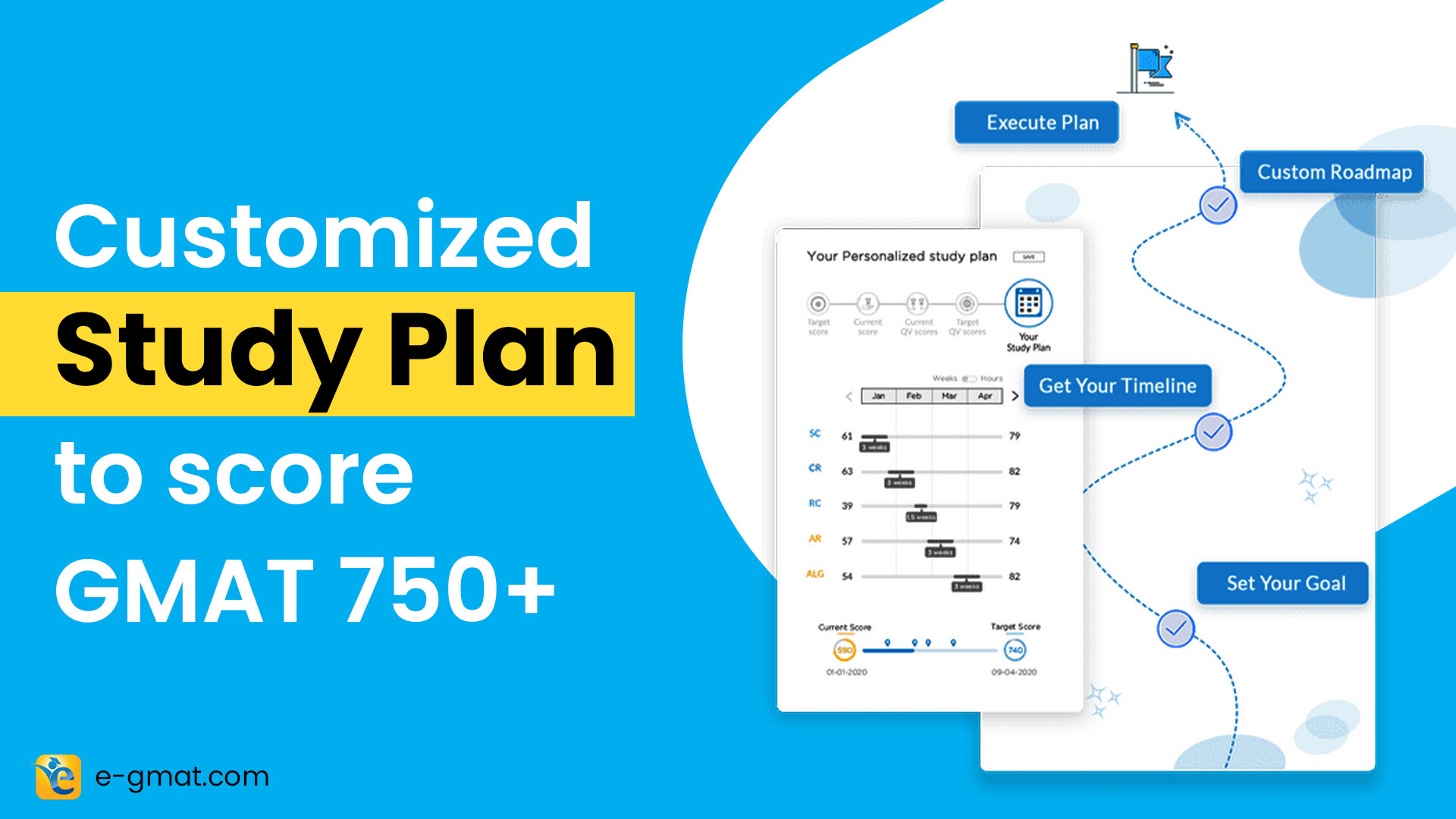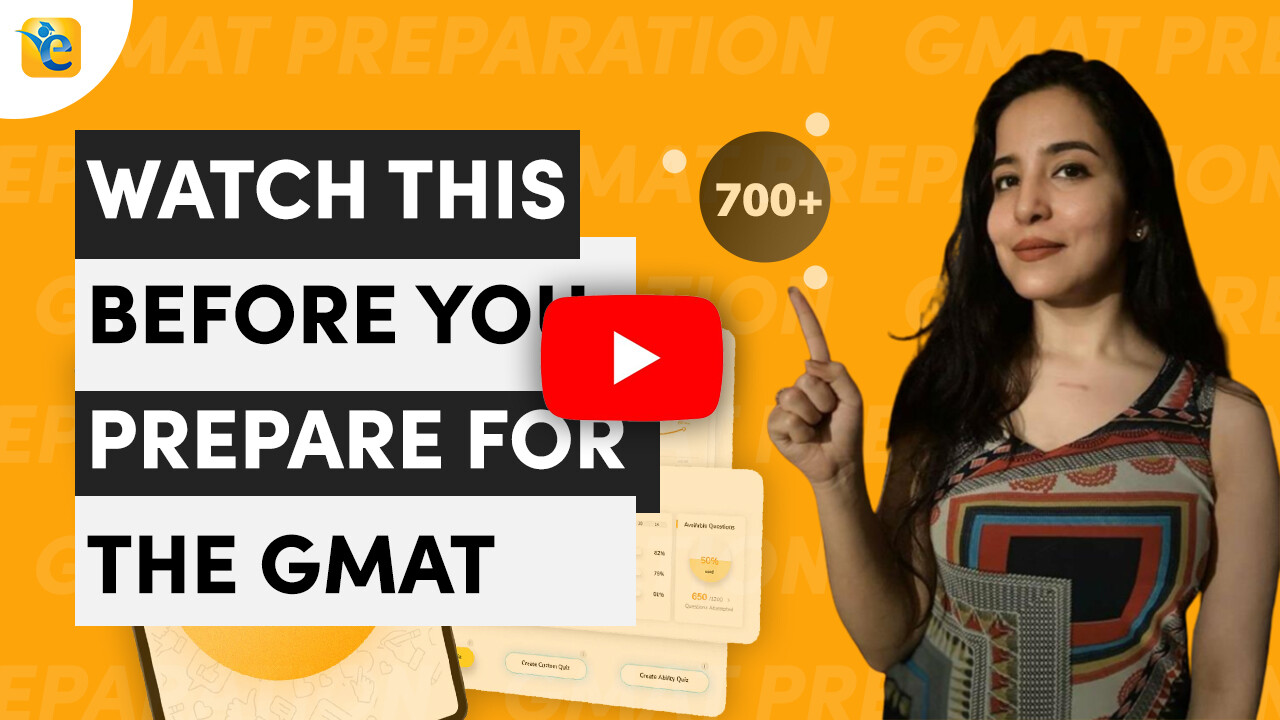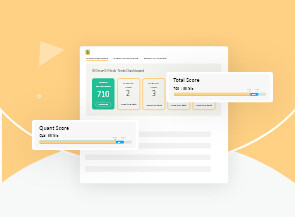Success doesn’t depend on any external conditions; our attitude governs it. It takes continuous effort and determination to keep progressing until the target is achieved.
Shourya hit his target in his first attempt by scoring the exact GMAT 750. His story is about how taking all the right steps with utmost earnestness propels you toward your goal.
Shourya started his preparation with a 670, which was 80-point short of his target score. While he kept complete faith in the e-GMAT course, he never failed to make the best of his own judgment and strategies.
He went through the entire verbal course and cemented his newly acquired skills until he was certain of his abilities. In his journey from Q49 to a perfect quant score of Q51, which many GMAT aspirants dream of, he took no shortcuts.
Watch Shourya share how he made every day count during the six months that he spent preparing to go from 670 to 750 on the GMAT.
GMAT 750(Q51, V40): journey overview
Payal: Welcome Shourya to this debriefing session. Congratulations on your 750 score. How does it feel?
Shourya: Thank you so much. It feels terrific, 750 score is exactly what I was aiming for. I am thrilled.
Payal: You got a Q51 and V40; that’s fabulous. How long did it take for you to get to the score? When did you start preparing?
Shourya: I started that around Feb ’22 and took the test in Aug ’22. It was a taxing journey. I needed improvement in verbal. I especially needed to improve in Critical Reasoning, which was hurting my score; that was my weak point. I enrolled with e-GMAT on a friend’s reference. She said it’s a great platform and would help build my understanding from the base. She was correct; that’s what helped me achieve my target score.
Verbal preparation with e-GMAT
Payal: You started with a 670 when you joined the course. You mentioned CR was your weak point. How did you prepare for verbal this time? Did you go through the course in the suggested sequence; Master Comprehension, SC, and CR?
Shourya: Yes, I followed the course flow. As soon as I understood how the course was structured, I realized that I did not need to spend time thinking about the flow of my study. I had complete faith in the experts and the course. It all helped me in the end.
As soon as I understood how the course was structured, I realized that I did not need to spend time thinking about the flow of my study. I had complete faith in the experts and the course. It all helped me in the end.
Payal: Perfect. It’s our job to ensure you have the correct flow and structure while preparing.
Shourya: Exactly. I knew that I was trusting the experts on this.
Three things to improve GMAT verbal
Payal: Tell me about the three things that came out during the verbal course. What is it that made the difference, and you got a V40?
Shourya: I would say that the first thing that made a difference while going through the course was the understanding provided for every topic. The course starts from the fundamental level, which is crucial in building the proper foundation.
The best way is to learn to do the easy questions first and then move your way up to the difficult ones. This whole process was precisely replicated by e-GMAT, going from easy to medium to hard. I echo entirely with this approach.
And the second thing was the pre-thinking concept. It really helped me to tackle questions smartly. Earlier I’d just focus on reading the questions and looking for the most relevant option. But pre-thinking sets a base with which you know the path forward. With pre-thinking, I already had a rough map in my head when I was approaching questions.
Pre-thinking really helped me to tackle questions smartly. Earlier I’d just focus on reading the questions and looking for the most relevant option. But pre-thinking sets a base with which you know the path forward. With pre-thinking, I already had a rough map in my head when I was approaching questions.
Payal: That’s very well said. Pre-thinking doesn’t mean you get to the exact answer and predict what exactly you’ll see in the answer choices. As you said, it gives you that rough map that sets the basis for evaluating answer choices.
Shourya: And the third thing would be the verbal Scholaranium. The variety and depth of the question bank that e-GMAT offers were incredibly beneficial. Although, I didn’t even exhaust it entirely. I am not sure how many people do that.
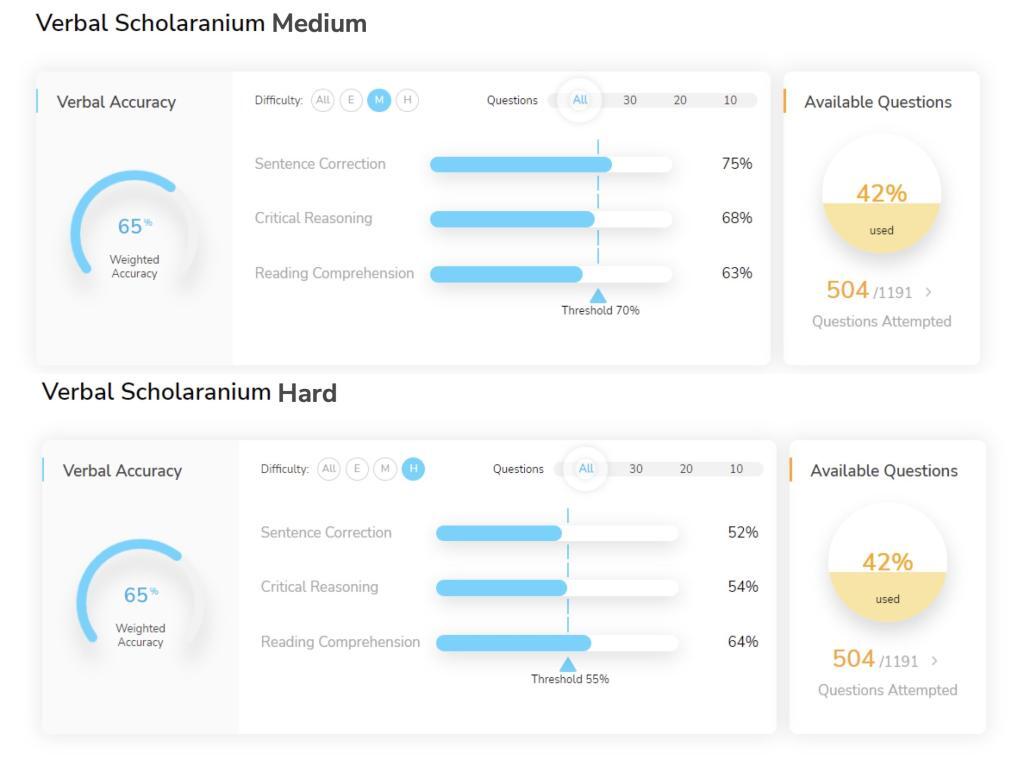
Payal: Typically, people use 60% of questions in each verbal and quant section. And I can see you did 42% of it.
Shourya: And by 42%, I knew I was ready to take the test. I found the detailed explanation for each question the most impressive part. The analysis shows us which answer is correct and, more importantly, why. That actually helps you identify gaps in your approach. Which I feel is the crux of e-GMAT.
It is not about practicing too many questions. It is about analyzing where you’re wrong and how your approach needs to be amended.
I found the detailed explanation for each question the most impressive part. The analysis shows us which answer is correct and, more importantly, why. That actually helps you identify gaps in your approach. Which I feel is the crux of e-GMAT.
Payal: You are saying all the right things. It’s not about practicing too many questions; the learning is in analyzing. I wish everybody understood that. The course remains the same for everyone but what makes a person successful using it is understanding these principles and then trusting the course that it’ll take you to your best ability level.
I see that you utilize quant Scholaranium as well. How did that go?
Shourya: For quant Scholaranium also, I have the same comments as verbal. The explanation given for the questions is excellent. It helps you fix your approach wherever any modification is required. I found quant relatively less difficult than verbal.

Quant preparation: Q49 to Q51
Payal: You went through the course pretty diligently, at least Number Properties, algebra, and half of the word problems. What made you go through the course in such depth?
Shourya: Actually, it’s been a couple of years since I sat down to study. In more than five-six years, I had forgotten a lot of maths. I needed to get back in touch. The course was beneficial in refreshing my basic concepts.
As I went through the initial videos, I realized I needed to redo all of it rather than doing it in bits and pieces. I wouldn’t have gotten the complete picture If I had done that. That’s why I went through the entire course. And it was the right decision.
Payal: I can see from your profile that you also used the PACE engine. It recommended that you skip a few topics, but you still went through the concept files of those modules. You did not want to leave any stone unturned, and I believe that helped you to go from Q49 to Q51.
How did you go about doing the test readiness? What did you do five days leading up to the test?
Shourya: Six days before the test, I gave my last mock. Once done with that, I knew I was ready. I didn’t want to overdo it from that point. I had six days to bridge and decided not to over-stress. I prepared for six months and knew I could not majorly change anything in the last few days to improve my preparation significantly. I just went in light, ensuring that I was calm, not nervous, and my Headspace was ready.
Payal: Your performance in both verbal and quant were excellent. The system also told you that you were ready.

Tips to GMAT aspirants
Payal: If there were two things you wanted to share with other GMAT aspirants, what’d you say?
Shourya: At the risk of repeating myself, the first I’d say is do not over-practice questions.
I believe it is a myth that over-practicing would lead to your target score. Instead, it is more about how you introspect where you’re going wrong. What kind of errors are you making, and what tweaks do you require in your approach? That would definitely be my number one suggestion.
And the second would be that you must not give yourself any stress in the last week of your preparation. At that time, you need to trust your preparation. You trust the process. And essentially, not just for the last week, that is for the entire preparation. You must trust the process.
Sometimes you’ll feel that this is not going anywhere, but it is about adding bit by bit to the foundation you’re making and creating it into the building you want.
Payal: Very well said. Congratulations once again, Shourya. Good luck with your future endeavors. Keep in touch and let us know where you end up.


